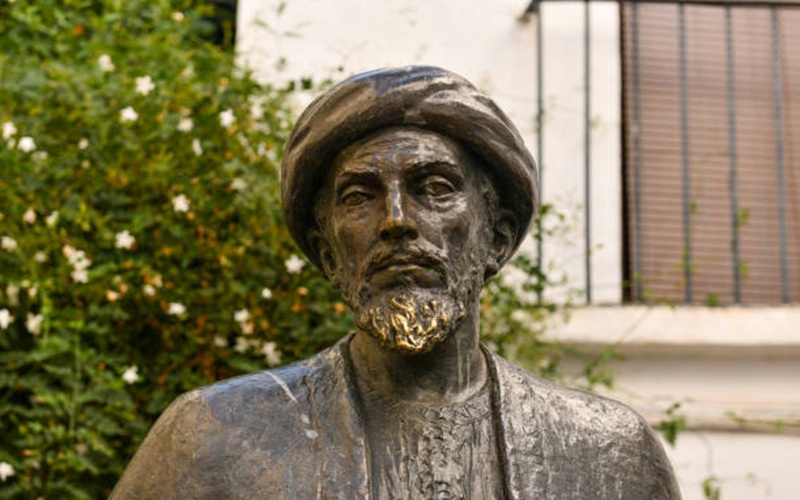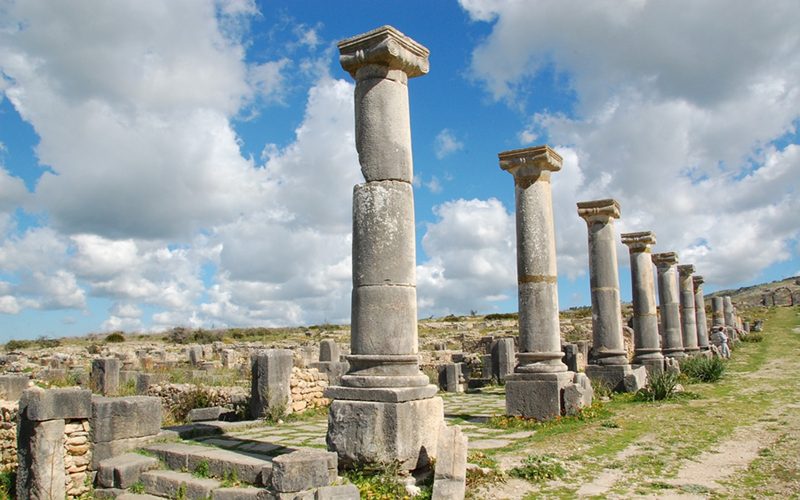Abstract
Stands as a towering figure in the annals of Jewish philosophy and medicine, Moses ben Maimon, commonly known as Maimonides was born in Cordoba, Spain, in 1135, Maimonides navigated a life steeped in cultural and religious complexities, moving through Morocco and Egypt before settling in Fustat near Cairo. His works bridged the worlds of Jewish religious thought and Greco-Arabic philosophy while laying the foundations for modern medical practice. This paper explores the dual legacy of Maimonides as a physician and philosopher, examining his contributions to Jewish thought, the intersection of faith and reason, and the development of medical ethics and practice.
Introduction
The historical significance of Moses ben Maimon lies in his profound ability to synthesize disparate streams of thought during a time when the Islamic Golden Age saw exponential growth in scholarly endeavour. His philosophical writings, notably “The Guide for the Perplexed,” aimed to reconcile Jewish theology with Aristotelian philosophy. As a physician, he practiced in a complex social fabric where medicine was not merely a mechanical trade but intertwined with philosophical and ethical implications.
Early Life and Education
Maimonides was born into a Jewish family in Cordoba, a city rich in intellectual interchange. His early years were marked by the Almohad invasion, which forced his family to relocate several times. Education under diverse teachers enabled Maimonides to immerse himself in Jewish texts, Arab philosophy, and the sciences of his time. The broad academic exposure shaped his dual career path as both physician and philosophical commentator.
Maimonides the Philosopher
Maimonides’ philosophy is perhaps best encapsulated in “The Guide for the Perplexed,” written in Arabic and later translated into Hebrew. This work sought to provide a rational understanding of Jewish beliefs, particularly the nature of God, prophecy, and the creation of the universe. Maimonides argued that faith and reason are not mutually exclusive; rather, they can inform and enrich each other. He emphasized the importance of intellectual inquiry, fostering a tradition of rationalism within Jewish thought.
His philosophical contributions extended beyond religion into the realm of ethics, where he laid down principles of moral conduct that called for a balance between emotion and rational thought. This notion is echoed in his writings on the purpose of human life, positing that self-perfection and intellectual development were paramount.
Maimonides the Physician
Maimonides’ medical career flourished while he served in Fustat, where he was appointed court physician to Saladin. His medical writings, such as “The Regimen of Health” and “On Bloodletting,” are critical texts that combined empirical observation with the medical knowledge of his time, much of which was derived from Hippocratic and Galenic traditions.
In “The Regimen of Health,” he expounded on issues of diet, lifestyle, and preventive medicine, stressing the importance of harmony between body and soul. His approach to medical ethics reflected his philosophical ideals; he advocated for humane treatment and the moral responsibility of physicians, emphasizing that their role was to heal, not merely to cure.
Ethical Implications in Medicine
Maimonides was acutely aware of the ethical dimensions of medical practice. His guiding principle was the preservation of life and the alleviation of suffering. He articulated a vision of medicine as a vocation that demanded both technical skill and moral integrity. The integration of ethical considerations into medical practice was revolutionary, positing that physicians are bound by a duty to place the welfare of patients above all else.
His writings influenced later medical texts and ethical standards, impacting both Jewish and non-Jewish medical traditions. The Maimonidean framework became a vital reference in discussions concerning the physician’s responsibilities, the sanctity of life, and the moral dilemmas faced in healthcare.
Legacy and Conclusion
Maimonides’ legacy as a doctor and philosopher transcends his historical context, reverberating through centuries. His philosophical inquiries into the nature of divinity and ethics, alongside his pioneering medical practices, left an indelible mark on both Jewish thought and the broader intellectual tradition. The synthesis of science and religion, reason and faith, exemplified by Maimonides, continues to resonate in contemporary discourse across various fields.
In conclusion, Moses ben Maimon exemplified the integrated pursuit of knowledge—one where philosophy and ethics enhanced the practice of medicine. His life’s work remains a cornerstone for future generations, highlighting the enduring dialogue between the mind and the heart in the quest for truth and healing.
References
- Maimonides, M. (2005). The Guide for the Perplexed. Translated by M. Friedlander. New York: Dover Publications.
- Maimonides, M. (2003). On Medical Ethics. Edited by J. H. Steinberg. New York: New York University Press.
- Robinson, D. (2011). Maimonides: A Very Short Introduction. Oxford: Oxford University Press.
- Aumann, J. (2009). Maimonides’ Conception of the Physician. Hekhalot, 25(2), 47-68.
- Cohen, H. (1995). The Philosophy of Maimonides. New York: Macmillan.











Average Rating